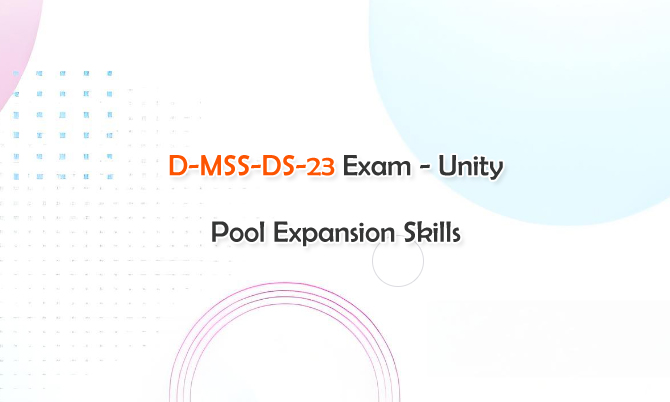Dell EMC Unity is a midrange storage solution that offers efficient, flexible, and scalable storage management. A critical feature of Unity is its ability to expand storage pools, which allows organizations to increase their storage capacity seamlessly as their data needs grow. Storage pools in Unity consist of physical drives grouped together to provide storage resources for various applications, with automatic data placement optimizing performance and capacity.
Methods of Pool Expansion
Unity offers several methods for expanding storage pools, catering to different needs and scenarios. One method is adding drives to an existing pool, which increases capacity and potentially improves performance by distributing workloads across more drives. Another method is expanding existing RAID groups within a pool, maintaining data protection and performance while increasing capacity. Additionally, dynamic pool expansion allows administrators to add drives without manual RAID configuration, with Unity automatically integrating the new drives and redistributing data to optimize performance.
Benefits of Pool Expansion
Expanding storage pools in Unity provides significant benefits, including scalability, flexibility, and non-disruptive operations. Scalability allows organizations to accommodate data growth without major infrastructure changes. The flexibility of multiple expansion methods lets administrators choose the best approach based on current and future needs. Non-disruptive expansion ensures continuous data access and minimal downtime, crucial for maintaining business operations. Adding drives can also improve performance by increasing the number of spindles available for I/O operations, reducing latency and enhancing throughput.
Steps to Expand a Pool
To expand a pool in Unity, start by planning the expansion based on current usage and required capacity increase. Physically install compatible new drives into the Unity storage array. Use the Unity management interface to initiate the expansion, following the guided process to integrate the new drives correctly. Monitor the expansion process and verify the new pool capacity once completed, ensuring system performance meets expectations. Adjust storage policies and workloads as needed to leverage the expanded capacity effectively.
Unity: Pool Expansion related questions in D-MSS-DS-23 exam are available below.
1.A customer wants to expand their Dell EMC Unity Hybrid system, which includes a pool of 64 drives in a RAID 5 (4+1) configuration. What is the minimum number of drives needed to expand the pool?
A. 1
B. 5
C. 6
D. 7
Answer: C
Explanation:
DELL PDF document about dynamic pools: h16289-dell_emc_unity-dynamic_pools.pdf Page 20-21. The smallest RAID 5 stripe width the system supports is a 4+1. The smallest dynamic pool created with the RAID 5 4+1 configuration is 6 drives. The minimum drive count includes the number of drives specified in the stripe width, plus the hot spare capacity. The hot spare capacity is selected by the user at pool creation, and can either be set to 1 or 2 drives for every 32 drives in the pool.
2.A customer has a Dell EMC Unity 680F array with a single pool consisting of 10 drives configured with RAID 5 (4+1). What is the minimum number of drives required to expand the pool?
A. 1
B. 5
C. 6
D. 7
Answer: A
Dell EMC Unity's pool expansion capabilities provide a robust, scalable solution for managing the ever-growing data storage needs of modern enterprises. With its flexible and non-disruptive methods for expanding storage pools, Unity ensures that organizations can easily increase their storage capacity without compromising performance or data accessibility. The ability to seamlessly add drives and expand RAID groups, combined with the intelligent data management features of Unity, makes it an ideal choice for businesses looking to optimize their storage infrastructure. By leveraging these advanced features, organizations can maintain efficient, reliable, and high-performing storage environments that grow alongside their data demands.
